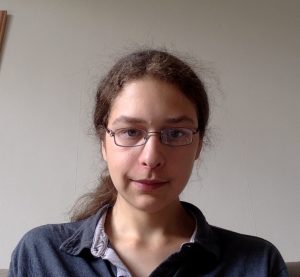
Simon is a Graduate Student at the University of Manchester, whose research interests are in observational cosmology, particularly using weak lensing of galaxies as a probe of large scale structure. Practically that means measuring the shapes of galaxies and using simulations to constrain the biases in the derived shear estimates. He is also interested in how lensing can be combined with other late-time probes to tell us more about cosmology and possible systematics in the data.
Simon is the lead author on one of the recently published key papers: Dark Energy Survey Year 1 Results: The Impact of Galaxy Neighbours on Weak Lensing Cosmology with IM3SHAPE
We asked Simon a few more questions — here’s what he had to say:
What is your favorite part about being a scientist?
I get to think about things that interest me for a living.
Do you have any hobbies or take part in any sports?
Reading, walking, politics, theatre.
If you weren’t a scientist, what would your dream job be?
I think I’d be either a writer or a historian.
What do you think has been the most exciting advance in physics / astronomy in the last 10 years?
Single discovery: Riess & Perlmutter’s discovery of the accelerated expansion of the Universe.
General progress: the advent of gravitational shear as a cosmological probe. It still astonishes me that one can fit ellipses to fuzzy, pixelized, morphologically complex galaxies, and obtain any meaningful results at all. That we can use them to measure the fundamental properties of the Universe to a few percent, even more so. As a collective achievement it’s utterly useless, but still quite amazing.
What do you think has been the most exciting advance in science / technology in the last 10 years?
I think the most important changes have been gradual, rather than headline-grabbing discoveries. Like, for example, the slow rise in routine vaccination against conditions that were once debilitating. Small advances that make the world incrementally more equal and more comfortable.
Any advice for aspiring scientists?
Try to find something that really interests you, and pursue it. Day-to-day research is often frustrating, but it helps a lot if you’re genuinely curious to know the answer to whichever problem you’re working on.